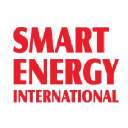The European Union (EU) aims to position itself as a leading destination for investment capital in the electricity sector, but significant barriers remain that hinder progress. The call for action comes in the wake of the EU’s plan to phase out Russian gas imports by the end of 2027, which currently accounts for about 15% of the region’s electricity production, down from 19% five years ago.
The European Commission has announced that new import contracts for Russian gas will be banned starting in 2025. This shift necessitates alternative energy sources, including increased liquefied natural gas imports and a greater reliance on renewable energy. According to Eurelectric, a federation representing over 3,500 European utilities, the diversification of energy supplies is crucial for enhancing energy security, fostering decarbonisation, and improving industrial competitiveness. In 2024, fossil fuel imports into the EU amounted to €350 billion, a decline from a peak of €600 billion in 2022.
Eurelectric’s Secretary General, Kristian Ruby, emphasized the importance of electrification in achieving energy sovereignty and security. He stated that moving away from fossil fuel generation would reduce electricity prices, as renewables typically offer lower costs.
However, EU Commissioner for Energy and Housing, Dan Jørgensen, warned that urgent action is needed to tackle climate change. He pointed out that existing measures to integrate more renewable energy sources are saving the EU €33 billion annually, but the target is to increase this to €45 billion. Jørgensen highlighted that electricity prices in the EU are currently two to three times higher than those in the United States, which undermines the region’s industrial competitiveness.
Electrification is identified as a key driver for both competitiveness and decarbonisation, according to Ditte Juul Jørgensen, Director General for Energy in the European Commission. She noted that the shift in U.S. energy policy under President Trump has created a unique opportunity for Europe to lead in clean energy production.
Jon Phillips, CEO of the Global Infrastructure Investment Association (GIIA), expressed optimism about the EU’s size and stable policy environment, suggesting it could become a top destination for investment capital, particularly for data centers. Although European electricity might be costly, the region’s experience in energy efficiency is a notable advantage.
Despite this positive outlook, many stakeholders in the electricity sector believe that slow and inefficient permitting processes are significant impediments to investment. Permitting for projects in the EU can take up to ten years, compared to three and a half years in the U.S. Leonhard Birnbaum, former Eurelectric president and CEO of E.ON, identified permitting as one of the primary bottlenecks, along with the high costs of electricity. He proposed charging companies for access applications to help expedite the permitting process.
The European Commission has acknowledged the inadequacies of the current permitting system and has pledged that project approvals should generally take no more than six months, or up to two years for larger projects. A new grid package aimed at improving permitting processes is expected to be published by the end of the year. This initiative will focus on developing cross-border grids among EU countries and enhancing digitalization within the energy sector.
Denmark’s Minister for Climate, Energy, and Utilities, Lars Aagaard, stressed the need for a streamlined approach to planning, stating that current complexities and delays hinder infrastructure development.
Investment is crucial for achieving the EU’s long-term energy and environmental objectives. Roger Martella, Chief Corporate Officer of GE Vernova, highlighted that prioritizing energy security necessitates substantial investments.
Romania’s Energy Minister, Sebastian Burduja, noted that despite receiving €14 billion for decarbonisation, the funding remains insufficient for grid modernization, which only received €1.9 billion. He emphasized the importance of maintaining EU principles and ensuring a unified single energy market, which would benefit all member states.
GIIA’s Jon Phillips pointed out that the EU’s fragmented energy market, comprising 27 individual markets, poses challenges to investment. He advocated for greater involvement of private sector funding in electricity distribution, suggesting a 70% public and 30% private funding split for optimal investment effectiveness.
The tension between investability and affordability remains a pressing issue, as projects may require upfront costs that yield long-term benefits. Michael Lewis, CEO of Uniper, emphasized that a diverse electricity system, bolstered by distributed renewables, will help lower electricity costs over time, but upfront financing is necessary.
Birgitte Ringstad Vartdal, CEO of Statkraft, underscored the need for public sector engagement in financing large-scale projects to mitigate investment risks. The European Commission is currently reviewing state aid rules to facilitate greater financial support for energy projects across the EU.

